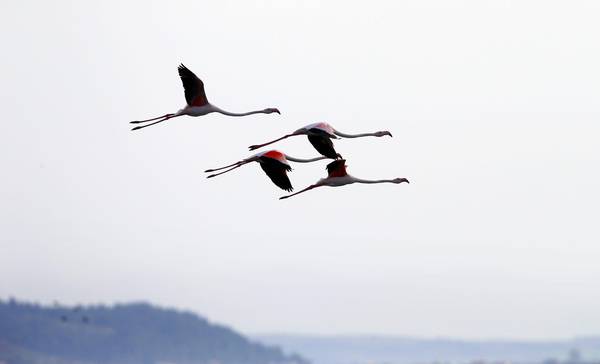(ANSA-AFP) - DIVJAKA, FEB 8 - Thousands of migratory birds
have failed to make their annual visit to Albania's western
coast this winter, experts say, pointing to climate change,
overfishing and urbanisation as likely factors. The number of
waterbirds recorded in January 2022 in the Divjaka-Karavasta
wetlands -- an internationally important wintering site along
the European migratory flyway -- was 25 percent lower than at
this time last year. Western Albania recorded the drop during
the annual International Waterbird Census, a three-day global
event to monitor the migration patterns of waterfowl across the
world. Several species are affected by the decline, according to
Taulant Bino from the Albanian Ornithological Society.
"We discovered that some 9,000 waterbirds are missing from the
Divjaka-Karavasta lagoons compared to last year," said Ardian
Koci, head of the Divjaka-Karavasta National Park, where the
protected wetlands are located. Koci told AFP a total of 25,000
birds were counted in Divjaka-Karavasta -- one of the most
important wetland ecosystems in the Mediterranean -- during the
census on January 15-16, as compared to 34,000 in the survey a
year earlier. (ANSA-AFP).
© Copyright ANSA - All rights reserved














